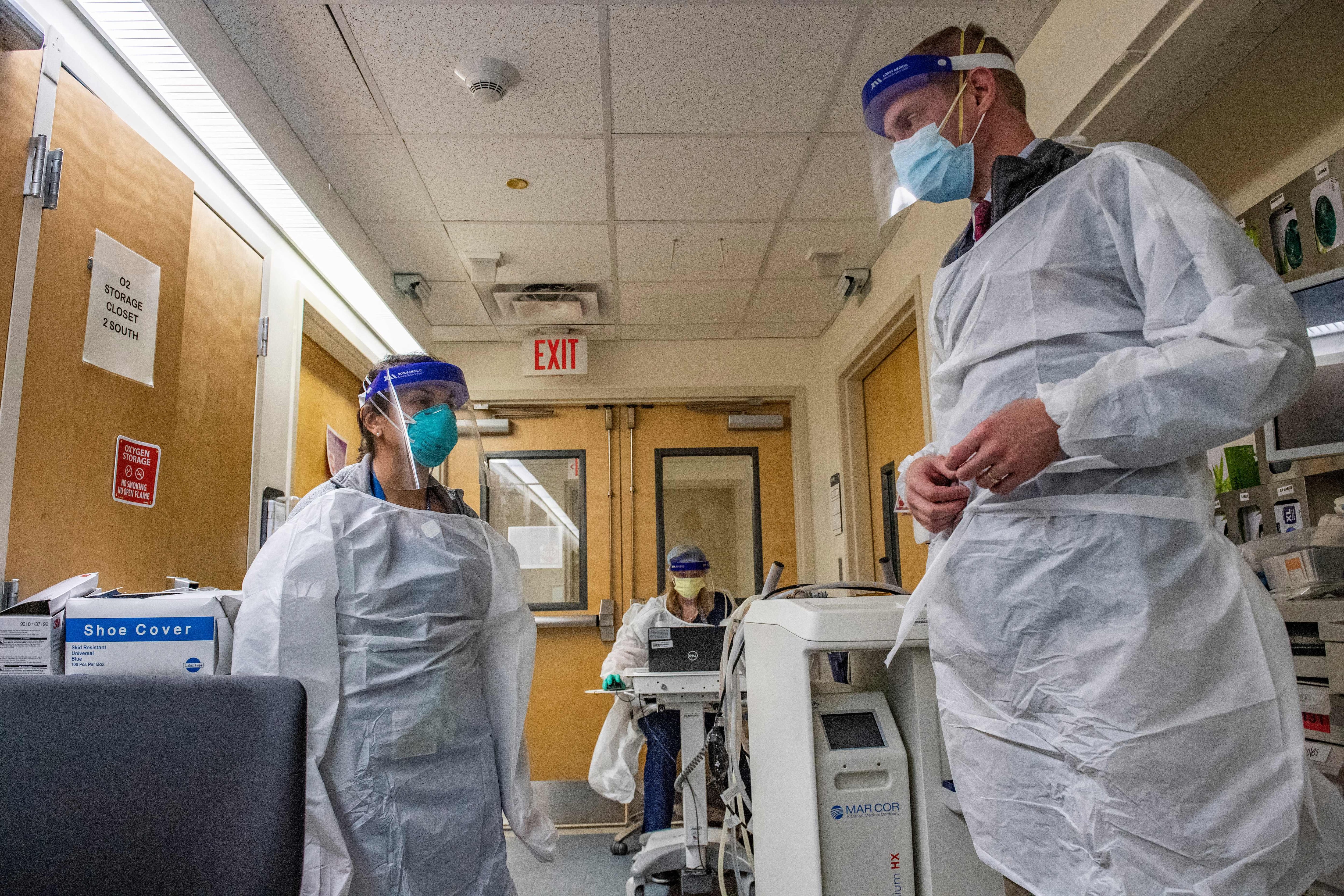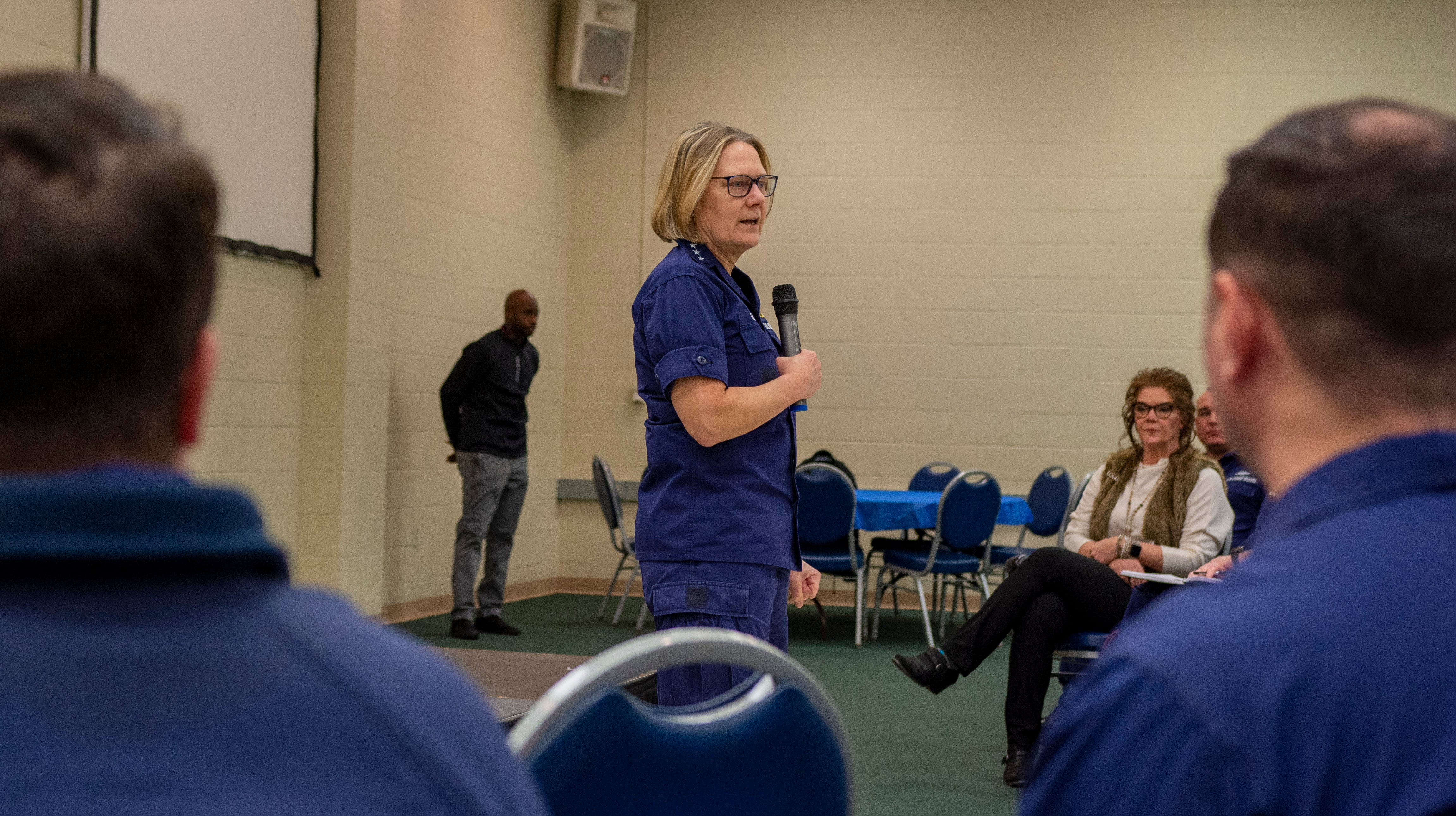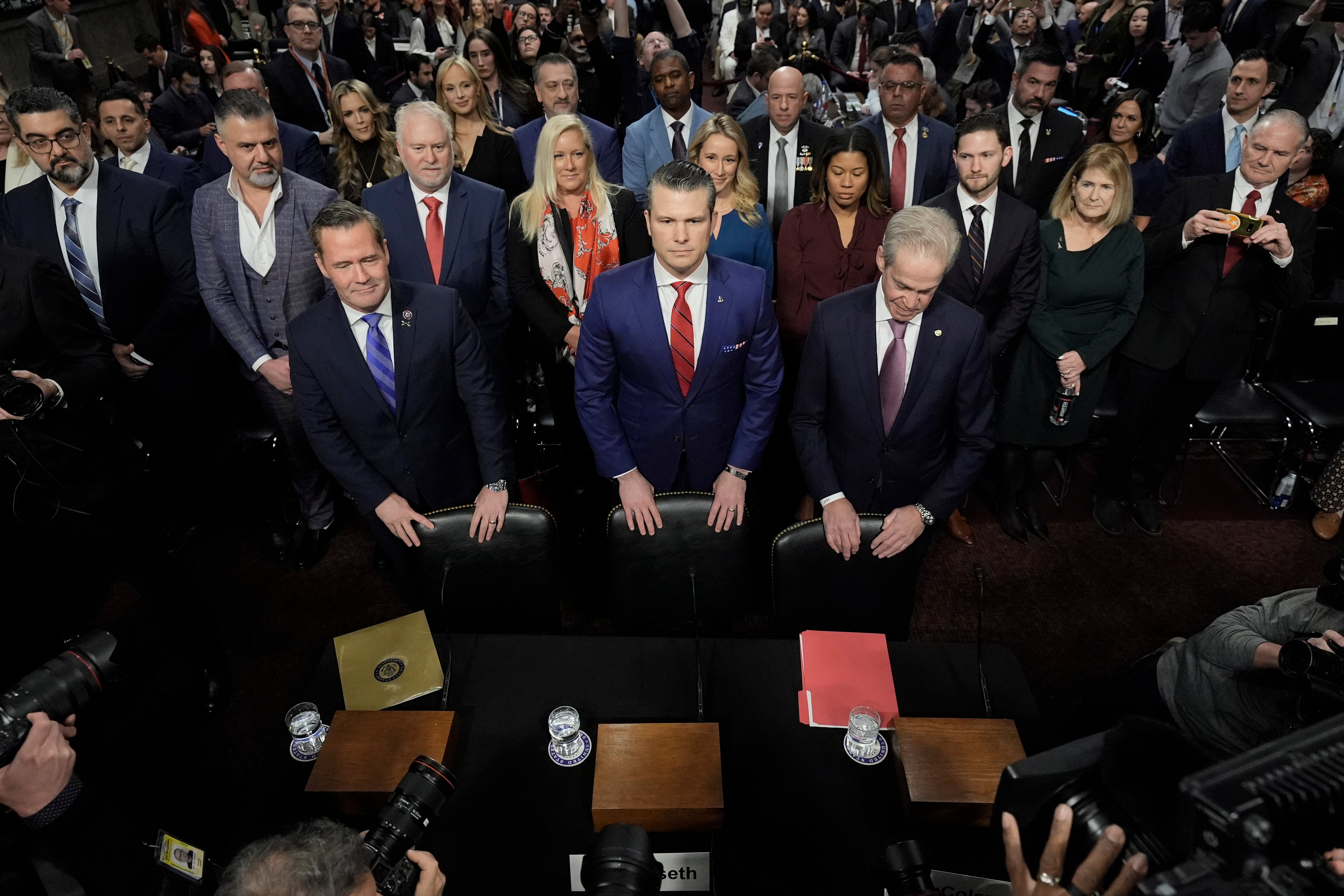The family of retired Lt. Gen. Hal Moore has donated military artifacts from the late soldier's time as commander of the 7th Infantry Division.
Moore died Feb. 10 at the age of 94, and the 7th ID at Joint Base Lewis-McChord in Washington dedicated its main conference room in his honor on Wednesday.
Two of his sons, Steve and David, donated the items from when their father commanded the division in Korea from May 1970 to March 1971, according to the Army.
The brothers shared stories about Moore, who is best known for his actions in the Battle of Ia Drang in 1965 during the Vietnam War. He served as the commander of 1st Battalion, 7th Cavalry Regiment.
Within 20 minutes of the first shot of that deadly battle, Moore's battalion was vastly outnumbered and assaulted by hundreds of enemy furiously determined to overrun the Americans, according to the Army.
After a three-day bloodbath, the enemy quit the field, leaving more than 600 of their dead on the battlefield.
Moore was awarded the Distinguished Service Cross, the nation's second highest award for valor, for his actions during that battle.
These actions also served as the inspiration for his book "We Were Soldiers Once, and Young." The book was turned into a movie in 2002, with Mel Gibson portraying Moore.
The retired general died at his home in Auburn, Alabama. He is survived by three sons, two daughters, 11 grandchildren and four great-grandchildren. His wife, Julia Compton, died in 2004. Moore's death came after he had a stroke a few days earlier. His oldest son, H. Gregory Moore, provided Army Times with the text of the eulogy he delivered at his father's funeral service on Feb. 17.
Moore was commissioned as a second lieutenant in the infantry after graduating from West Point in 1945, according to the Army. He served with the 187th Glider Infantry Regiment in Sapporo, Japan, then was reassigned to the 82nd Airborne Division at Fort Bragg, North Carolina. There, he volunteered for the Army's Airborne Test Section, where he jump tested experimental parachutes, making more than 130 test jumps in two years.
Moore then was assigned to the 17th Infantry Regiment, 7th Infantry Division, where he commanded a heavy mortar company and an infantry company, according to the Army. He served as a regimental operations officer during the Korean War before serving at Fort Benning and undergoing air assault and mobility training and testing. Moore later assumed command of 3rd Brigade, 1st Cavalry Division, and led it through several major campaigns in 1966, earning a Bronze Star Medal with Valor — the third of his career — for carrying wounded soldiers to safety under "withering small and automatic weapons fire," according to the Army.
As a two-star, Moore commanded the 7th Infantry Division in Korea. He was later promoted to lieutenant general in 1974 and assigned to the Pentagon as the deputy chief of staff for personnel.
Moore, a native of Bardstown, Kentucky, retired from the Army in 1977.
Charlsy Panzino covers the Guard and Reserve, training, technology, operations and features for Army Times and Air Force Times. Email her at cpanzino@militarytimes.com.
Charlsy is a Reporter and Engagement Manager for Military Times. Email her at cpanzino@militarytimes.com.





